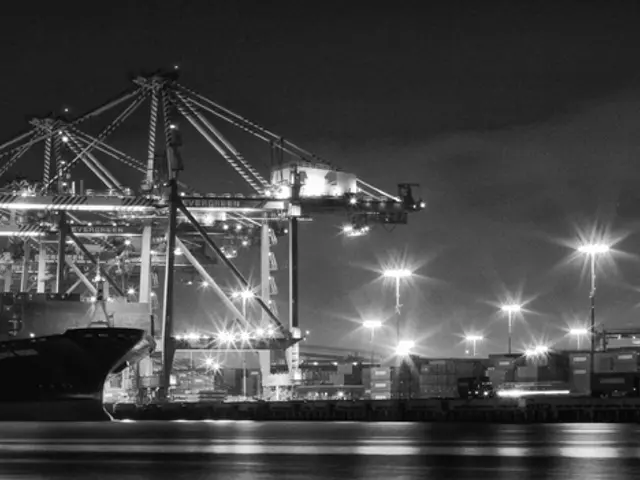Enlargement of border controls at German-Danish frontier announced - Intensified Inspections at the German-Danish Border Continue
New Federal Police Border Controls: What You Need to Know
📍 Spotlight: The Federal Police has ramped up border controls at the German-Danish frontier, intensifying checks and deploying more personnel since September 2020.
💼 Context: These increased controls follow a directive from the Federal Ministry of the Interior, with the new Interior Minister, Alexander Dobrindt (CSU), announcing the need for tighter controls. This includes the possibility of returning asylum seekers who have already applied in other EU countries, excluding vulnerable groups.
🚨 Implications: The expansion of these controls is not without controversy. Critics argue that it could hinder European unity, threaten human rights, and contribute to the growth of illegal activities.
🚓 On the Move: The Federal Police acknowledges the importance of maintaining fluid traffic for cross-border commuting in the German-Danish region.
💬 ** Square-Off:** The Social Democrats in Schleswig-Holstein have criticized the controls, with MP Birte Pauls stating that the party continues to object to border controls in the region.
Here's an overview of the background, debate, and impact of the stricter border controls:
🔒 Reasons: The primary motivations behind the intensified border control measures are concerns over irregular migration and national security. These moves are part of a broader European response to similar issues, with several countries implementing harsher border controls. Denmark, for instance, has bolstered its efforts in response to terrorism and criminal activity.
🛑 Effects: The additional police personnel and advanced technologies like automatic number plate recognition (ANPR) are expected to increase security and deter cross-border crime. However, the reinstatement of internal border controls could negatively impact travel, trade, and the free movement between member states, as it contradicts the Schengen Area's founding principles.
🤨 Controversy: The tougher stance on migration and asylum seekers has provoked concerns about human rights, European unity, and the long-term effectiveness of these measures. Critics argue that the controls may worsen human rights situations, harm European unity, and lead to increased illegal activities.
💬 Statement: The Federal Police acknowledges these concerns and aims to maintain fluid traffic while enhancing security measures. The controversial expansion of controls remains a topic of ongoing debate.
🔑 Notable points:
- Germany and other European countries have intensified border controls to address migration and security concerns.
- These measures may enhance security but could have detrimental effects on free movement, human rights, and European unity.
- The longevity and effectiveness of these controls are subjects of debate.
- Under the newly announced policy, the Federal Police is implementing stricter border controls at the German-Danish frontier, following a directive from the Federal Ministry of the Interior.
- The Danish government has also stepped up its vocational training programs to combat rising criminal activities and terrorism within its borders.
- There is a growing debate regarding the effectiveness of the increased border controls, with critics suggesting that they may worsen human rights situations, harm European unity, and lead to increased illegal activities.
- The Social Democrats in Schleswig-Holstein have criticized the border controls, stating their continued objection to such measures in the region, and arguing that they could negatively impact travel, trade, and the free movement between member states.








